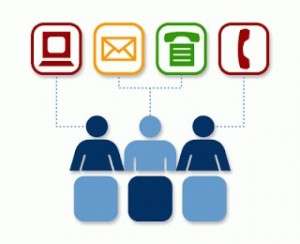Will Low-Code No-Code Replace Software Developers?

The Low Code Trend Transforms into No Code
But what exactly do the terms low-code no-code mean? And why are they important for your digital marketing activities? Here’s everything you need to know about low code trends and how they have transformed into no code today.
What Are “Low Code” and “No Code”?
The more our society transitions to the digital world, the more demand for new applications increases. This increased demand, however, cannot always be satisfied by software developers.
Therefore, to quickly build high-quality software applications, companies are looking for easier approaches to software development instead of looking for IT specialists to add to their teams. This is when low-code no-code development platforms are useful.
Low-Code No-Code Development Platforms
To put it simply, such platforms are used by companies to aid them in the development of different websites, services, and applications. These platforms usually offer different development tools with visual interfaces (e.g. drag-and-drop interfaces).
Thus, instead of having to write code, IT teams in different companies can simply use the platforms to create what they need efficiently and easily. The best thing about low-code and no-code development platforms is that you don’t need to be a specialist in coding to create a high-quality website, service, or application. It is similar to outsourcing in this sense.
For example, if you have poor writing skills, you can hire a professional writer from the writing services reviews site Best Writers Online to create content for you. This way, your company doesn’t need to find new writers for your team while you don’t need to develop your writing skills.
Interestingly, some experts claim that there is no such thing as “no-code development platforms” or rather that there is no difference between them and “low-code development platforms”. In many cases, platforms market themselves as “no-code” to attract more users who have no prior experience with development.
In other words, non-professional developers can use such platforms to create something as good as professional developers do. That being said, there are some differences between low-code and no-code development platforms.
No-Code Platforms
No-code platforms don’t require any programming skills and are generally marketed to non-developers while low-code platforms have more variety. The main drawback of no-code platforms is that there are usually limited customization options. In case you do want to add some extra details, you will need to use code to some extent.
Low-Code Platforms
Low-code platforms usually allow rapid development with an option to use coding to an extent, but it isn’t required. Low-code platforms automate certain aspects of development while offering features that no-code platforms have (e.g. drag-and-drop editors, code generators). Low-code platforms are generally marketed to professional developers who have limited expertise and experience or who want to streamline their development process.
If you see a development platforms marketed as both low-code and no-code, it simply means that the platform itself is low-code while acting in the way no-code platforms do in specific cases (e.g. when a task can be completed in a no-code mode). Besides development platforms, there are also other things being marketed as “low-code” or “no-code” (e.g. individual development tools).
Low Code Trend
As explained above, both low code and no code have been popular recently. But while low code dominated 2021, it seems that the industry no favors no code more.
Here are the low code trends that defined the past year:
Workflow Automation
Low-code solutions help companies automate some or most of their tasks involved in the development of their websites, services, and applications. Because there are not enough people to complete such tasks manually, workflow automation has become a crucial aspect of successful development.
API-Based Development
Application programming interfaces or APIs are widely used in development already, but when they are paired with low-code solutions, their benefits can be maximized. Moreover, many low-code platforms actually rely on APIs to offer their services to companies that need to develop something without using coding.
Customizable UX
While the number of customization user experience (UX) options offered by low-code platforms is not that big, there is still enough variety. Small businesses and startups with small budgets can benefit from such platforms the most. They don’t have high demands for the end product, so the customization options offered by low-code platforms are more than enough to create a professional-looking website or app.
Legacy Modernization
Though small businesses that are just getting started arguably benefit the most from low-code solutions, older companies can also use them for their own business process automation. For instance, legacy modernization can be much easier and smoother when using low-code development tools and solutions.
Cross-Platform Integration
One of the biggest concerns that companies have nowadays is maintaining consistency throughout multiple platforms. Websites often look different on desktop compared to their mobile versions. Luckily, many low-code platforms are already offering features that help companies create different versions of their websites, services, and apps for different devices.
No Code Trend
Going forward, it seems that no code is overtaking low code in popularity. This year, no code will likely become even more widely used. Here are the biggest no code trends in 2022:
Addressing Cybersecurity Concerns
One major trend seen in the industry is the increased attention to addressing cybersecurity concerns when using low-code no-code solutions. Because of the popularity of no code, there are more and more tools appearing on the market every day. Obviously, some of these are not as reliable as others which is why many companies are being cautious when using such solutions.
Training No-Code Developers
As more companies start working with low-code and no-code platforms and tools, there should be more personnel ready to try such solutions. Though the point of no code is that it doesn’t require any programming expertise, you can and should still prepare your employees to work with such solutions. In some cases, you might even need to hire and train no-code developers to strengthen your company’s IT team.
Organizational Alignment
In addition to training current and new employees, companies actually need to initiate change on a much higher level. In fact, it’s best for top executives to be the ones embracing low code and no code first before different departments within a company can start adopting either or both.
Embracing Hyper-Automation
As explained earlier, automation is a major advantage of all low-code no-code solutions. Moreover, the latter is known for its hyper-automation which significantly simplifies the old software development life cycle (SDLC) process. It’s a major benefit for companies of all sizes working on projects of different types and requirements.
Accelerating Timelines
Lastly, no code solutions can help you accelerate the timeline of your development and reduce the time until you start marketing the product you were working on such as an app. Much like outsourcing which accelerates timelines, low-code solutions are perfect for saving time.
What to Expect in the Future?

Improve the management of your software development projects with easily editable Software Development Policies and Procedures Manual.
So, what can you expect in the future? How will low code and no code change this year or the next year? Here are some predictions experts are currently making:
Low Code and No Code Will Gain Even More Popularity
It is expected that 70% of new apps will be developed using low-code and no-code solutions by 2025, so it is obvious that both will get even more popular in the coming year.
Low Code Will Be Trusted More Than Before
As low code gains more popularity and more companies start adopting it, their competitors and partners alike will take notice. Those who were cautious will start trying such solutions just to see if they fit into their strategy. This will lead to more trust in and even loyalty to low code.
Low Code and No Code Will Change SDLC
SDLC or the software development lifecycle will likely change completely as a result of the mass integration of low code and no code. In other words, companies will no longer rely on coding and programming as much as they used to which will make the SDLC evolve.
Shortage of Developers Will Boost Low Code and No Code
The increased demand for software developers and the apparent shortage of such specialists has already accelerated the speed with which companies are moving on to other solutions such as low code and no code. However, if there are not enough developers in the nearest future, especially the ones who are educated and experienced, low code and no code will likely get an even greater boost.
The overall adoption of low-code and no-code solutions for development has made the industry more competitive. Thus, there will likely be more investments into new companies offering such low-code and no-code platforms and tools for businesses that need to develop websites, services, and applications.
Low-Code No-Code Replace Software Developers
To summarize, businesses can benefit both from low-code and no-code solutions. Whether you need to develop a website, a service, an application, or something else, using a platform or a tool that requires minimal programming expertise will be the best option for you.
 Author Bio: Sandra Bell is a freelance author and blogger. To write and create is her passion and hobby. Now she works as a writer and editor on the professional writing platform Best Writers Online. She is keen on some topics such as digital marketing, motivation, coaching, modern art, charity and many others close to the above-mentioned topics. Besides Sandra having a pet, she adores dogs and running.
Author Bio: Sandra Bell is a freelance author and blogger. To write and create is her passion and hobby. Now she works as a writer and editor on the professional writing platform Best Writers Online. She is keen on some topics such as digital marketing, motivation, coaching, modern art, charity and many others close to the above-mentioned topics. Besides Sandra having a pet, she adores dogs and running.
















Nice Content!